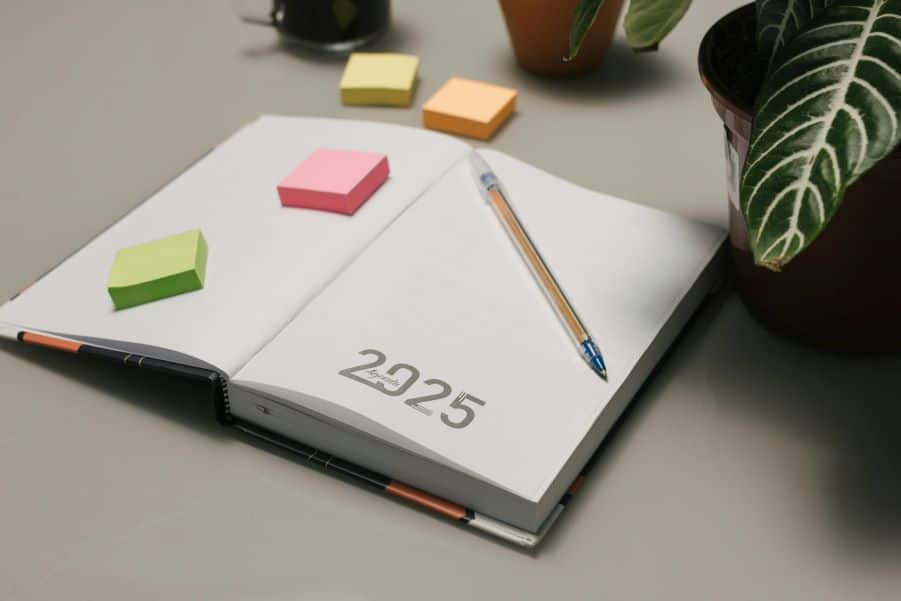The surprising magic of auditing your thoughts
Reading time: 4 minutes 16 seconds
There are tons of books that can tell you how to earn more money. More books tell you how to manage your time. There are even more books out there that tell you how to lose weight. What all three of these books have in common is the idea that for you to improve something you need to measure it.
So often, when it comes to our thinking or how we feel on a day-to-day basis, we overlook this approach. It’s almost as if we feel like we are starting from scratch and need to begin by practicing all of these new habits of thinking.
This week, I want to invite you to consider changing that approach.
What if we started to measure our thinking the same way we do our money or weight?
We can do this by what I call a ‘Mind Audit’.
The Mind Audit
The goal of a mental audit is to understand primarily two things:
1. What are you taking into your mind?
2. What are you doing in your mind?
When it comes to what you are taking into your mind, I’m talking about what information you absorb from the world. This may include your time on social media, the internet, the news, and even conversations with friends.
It considers what you are reading and listening to regularly. The idea is to understand what is it that you are working with.
When it comes to what you are doing in your mind, we are looking at how you are actively thinking.
How do you handle the problems you face in life?
How do you talk to yourself?
What kinds of thoughts do you typically have?
Of course, the information you take in will play a large part in influencing the way you think. At the same time, there are other influences too such as old habits of thinking you’ve had for years or certain beliefs you have built that filter your experiences accordingly.
Primarily, the stories you have told yourself about the world determine the way you are thinking today.
Auditing your mind means identifying what information or ideas you are inputting. It then means identifying what ideas are you generating and repeating in your mind.
The Audit Questions
To do this audit, I’m going to ask you to set aside an hour, to answer the questions below.
Input Audit
What do you read?
This could be books, articles, social media posts, newspapers, documents… anything.
What do you listen to?
This could be the radio, podcasts, music, or other people.
What do you watch?
This could be movies, television, social media, YouTube, or something that is happening live.
What do you talk about to others?
This could be with your family, friends, colleagues, parents, kids, or even strangers.
This will give you a good sense of what you take in and are internalizing. This is your current diet of information.
Thinking Audit
What do you complain about?
What do you find yourself complaining about to yourself and others consistently?
What do you stress about?
What makes you feel overwhelmed and under pressure?
What do you worry about?
What do you feel anxious about or what do you catastrophize about happening?
What do you feel bad about?
What makes you feel sad about your life or about life itself?
What do you feel good about?
What makes you feel happy about your life or life itself?
This will reveal what your inner practices are like.
Identity Audit
How do you see yourself?
This is the self-image you have.
What image comes to mind when you think of yourself?
How do you come across to people that meet you?
How do you beat yourself up?
What are the negative things you say to yourself about yourself?
What are the same old insults you hurl at yourself?
What character do you play in the problems of your life?
When you are thinking about your problems, whose fault is it? Are you the victim of the world or someone else?
Are you the villain and your own worst enemy?
What do you think about yourself?
This refers to your self-concept.
What are the core qualities you believe you have?
What are your weaknesses and strengths?
What makes you different from others?
This will help you identify the story you tell about yourself.
The Ideal Mind Audit
Next, you need to ask yourself the following questions so you have a direction to go in. This is the equivalent of building a perfect plan of nutritious food.
Ideal Input
- What do you need to read more?
- What do you need to listen to more?
- What do you need to watch more?
- What do you need to talk about more?
Ideal Thinking
- What positive comments do you share with people?
- What things do you do to relax?
- What makes you feel good?
- What positive thought processes do you engage in?
- What do you need to spend time and energy on?
- What do you need to fix?
Ideal Identity
- What character do you need to be when thinking about your problems?
- What are the things you need to work on?
- How do you need to speak to yourself better?
- How do you need to start thinking about yourself?
- How do you need to start seeing yourself?
When you take the time to go through this, it can be transformational. You are focusing on exactly what you are doing and what you are taking in and making a concrete decision to do something different.
If you start eating healthily, you start becoming healthy. If you start saving money, you’ll have more money. If you start allocating your time effectively, you’ll be more productive.
And if you start taking control over what you take into your mind and what you do in there, you’ll think and feel better.
You’ll find yourself seeing the world differently and making better decisions that will, in turn, lead you to a better life.
I hope you found this interesting – feel free to share it with your network.
Thanks,
Owen.
P.S. ‘Seven soft skills that every leader needs to master‘ is the latest video on my YouTube channel. You can watch it here.





